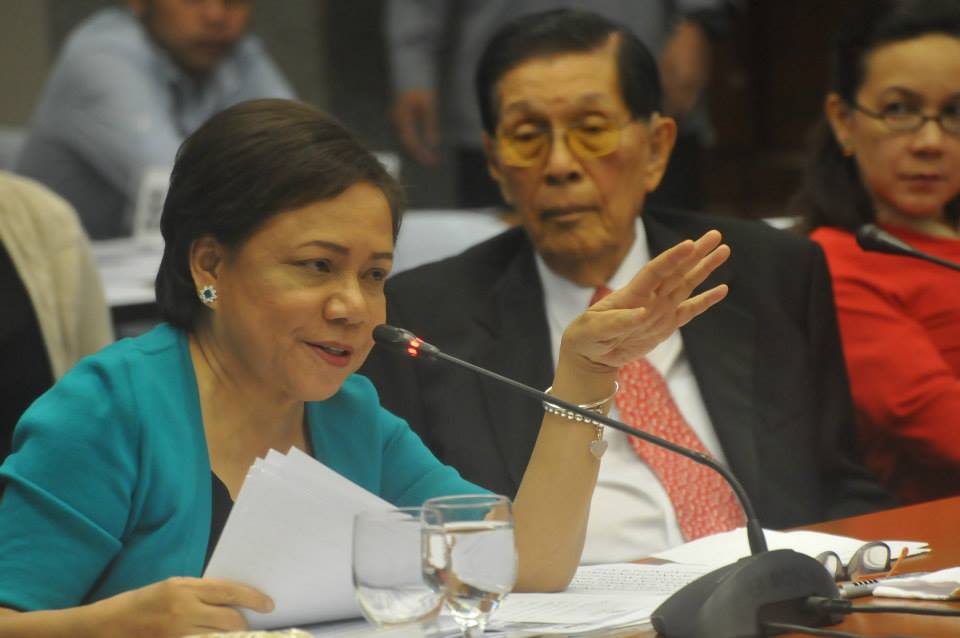Breaking
Villar commends authorities for apprehending frozen meat

Photo from Villar’s Facebook page.” width=”960″ height=”638″ />
Sen. Cynthia Villar (Senate Minority Leader Juan Ponce Enrile in the background). Photo from Villar’s Facebook page.MANILA – Sen. Cynthia Villar on Wednesday commended the vigilance of the authorities that led to the confiscation of imported frozen meat in public markets.
Villar expressed hope the seizure of imported frozen meat in various public markets during operations last Tuesday, would serve as a warning and deterrent to others to stop selling them, which is being prohibited.
“Aside from deceiving the consuming public by passing it off as fresh meat, you are also endangering their health,” stressed Villar.
The senator raised concern over the selling of imported frozen meat in the market, which poses problems in food safety.
She cited the statement of Dr. Minda Manantan, executive director of the National Meat Inspection Service, that imported frozen meat only goes to processors and not to retailers because we don’t want this to end up in our markets and supermarkets.
“These have been frozen for a very long time in another country and while in transit. Once thawed, these meat products are already expired and not safe for human consumption,” Villar said.
The Nacionalista Party senator said they will lose their seed capital and it might be difficult for them to recoup their losses.
Furthermore, the act amounts to patronizing the smuggling of meat which can adversely affect our economy.
Villar earlier divulged some 100,000 metric tons of meat was lost to outright smuggling last year. She said this is on top of the 40,000 metric tons lost to technical smuggling.
In a recent hearing of the Senate Committee on Agriculture and Food, which she chairs, Villar said it was established that a minimum of 100,000 MT of meat entered Philippine ports without proper documentation from the Department of Agriculture Bureau of Animal Industry and the Bureau of Customs.
She said they were able to identify the different tariff rate in good meat (35 percent), and offal and fats (5 percent), as the culprit in the proliferation of technical smuggling.
Villar also said tariff reforms and strict implementation of existing laws should be done to boost the competitiveness of the local livestock industry in preparation for the integration of ASEAN economic communities come 2015.





















